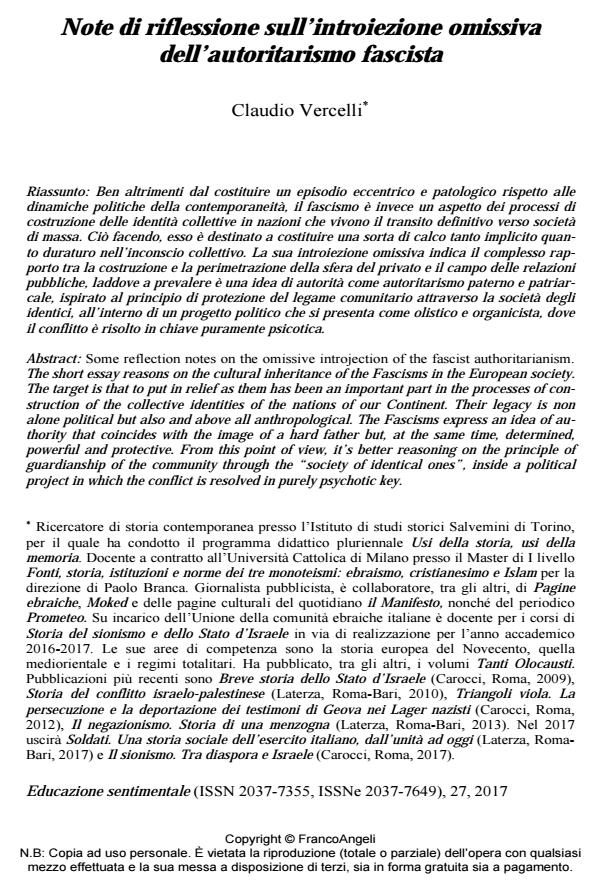Note di riflessione sull’introiezione omissiva dell’autoritarismo fascista
Journal title EDUCAZIONE SENTIMENTALE
Author/s Claudio Vercelli
Publishing Year 2017 Issue 2017/27
Language Italian Pages 10 P. 53-62 File size 171 KB
DOI 10.3280/EDS2017-027005
DOI is like a bar code for intellectual property: to have more infomation
click here
Below, you can see the article first page
If you want to buy this article in PDF format, you can do it, following the instructions to buy download credits

FrancoAngeli is member of Publishers International Linking Association, Inc (PILA), a not-for-profit association which run the CrossRef service enabling links to and from online scholarly content.
Some reflection notes on the omissive introjection of the fascist authoritarianism. The short essay reasons on the cultural inheritance of the Fascisms in the European society. The target is that to put in relief as them has been an important part in the processes of construction of the collective identities of the nations of our Continent. Their legacy is non alone political but also and above all anthropological. The Fascisms express an idea of authority that coincides with the image of a hard father but, at the same time, determined, powerful and protective. From this point of view, it’s better reasoning on the principle of guardianship of the community through the “society of identical ones”, inside a political project in which the conflict is resolved in purely psychotic key.
Keywords: Fascism, authoritarian mentality, public memory, fascist ideology, myth and society, nationalism and nation building, political anthropology.
Claudio Vercelli, Note di riflessione sull’introiezione omissiva dell’autoritarismo fascista in "EDUCAZIONE SENTIMENTALE" 27/2017, pp 53-62, DOI: 10.3280/EDS2017-027005